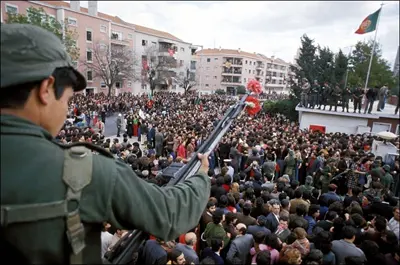
Engaging In Portuguese Culture
Founded in 2013, with generous gift from the Saab Family Fund, the Saab Center for Portuguese Studies promotes the multidisciplinary study of the language, literature and culture of the vast and varied Portuguese speaking world comprised of over 250 million people in eight countries on four continents and its diaspora.






